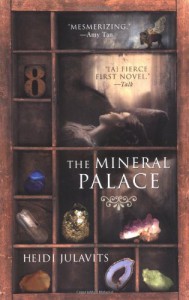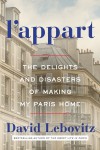19
Followers
19
Following
M Sarki
Besides being a poet with four collections published, M Sarki is a painter, film maker, and photographer. He likes fine coffee and long walks.
M Sarki has written, directed, and produced six short films titled Gnoman's Bois de Rose, Biscuits and Striola , The Tools of Migrant Hunters, My Father's Kitchen, GL, and Cropped Out 2010. More details to follow. Also the author of the feature film screenplay, Alphonso Bow.
Currently reading
L'Appart: The Delights and Disasters of Making My Paris Home
We Learn Nothing: Essays
Elmet: LONGLISTED FOR THE MAN BOOKER PRIZE 2017
Limbo, and Other Places I Have Lived: Short Stories
The Double Life of Liliane
At Home with the Armadillo
American Witness: The Art and Life of Robert Frank
Autumn
Inside Out: A Personal History of Pink Floyd (Reading Edition)
American Witness: The Art and Life of Robert Frank
The Mineral Palace
 https://msarki.tumblr.com/post/153814937153/the-mineral-palace-by-heidi-julavits
https://msarki.tumblr.com/post/153814937153/the-mineral-palace-by-heidi-julavits…The truth was that she’s come to see her husband’s infidelities as a relief. She and Ted had created a comfortable life inside of which they could hide from themselves and each other. The distance he maintained from her in order to protect his philandering meant that she could rightly be unknowable to him, and he to her.
A novel, disappointing in its unriveting action, provides at times a concept worth considering. But why Julavits persisted in having this rather weak work published feels almost desperate in her obsession, perhaps at any cost, to be seen, and considered, a novelist. Her nonfiction, or for argument a contrivance we might name creative nonfiction, is so vastly superior to a “made-up” fiction relying on dehydrated tools called plot that reading this first novel was a monumental struggle. The problem wasn’t only my previous encounter with [b:The Folded Clock: A Diary|22716391|The Folded Clock A Diary|Heidi Julavits|https://images.gr-assets.com/books/1419180457s/22716391.jpg|42243652] and how much I loved it, but the often held feeling I was now wasting my time reading this too-conventional first novel. But Julavits is smart and uses her personal studies to further enrich her fiction if the reader chooses to invest the time needed to discover hidden gems she plants in clear sight.
Julavits, in interviews, mentions the psychoanalyst [a:Adam Phillips|33751|Adam Phillips|https://images.gr-assets.com/authors/1363466197p2/33751.jpg] as a writer she reads. As relates to The Mineral Palace he writes in his book [b:Monogamy|763684|Monogamy|Adam Phillips|https://images.gr-assets.com/books/1320552119s/763684.jpg|749766] that:
The best hideout—the cosiest one—is the one in which you can forget what you are hiding from; or that you are hiding at all. The secret the couple have to keep—mostly from each other—is what they are hiding from and that they are hiding. The belief they have to sustain is that their fears are the same.
We have couples because it is impossible to hide alone.
And as much as I appreciate the work of Adam Phillips, and am grateful for Julavits and my introduction to him, The Mineral Palace fails to sustain me any longer. The writing is simply not good enough to continue on with reading further than page 132. The failure of Julavits to keep me engaged unfortunately rests in her allegiance to literary convention. It is my hope that successive fiction coming from the pen of Heidi Julavits proves to be one-of-a-kind, unique in its example, and demanding of my time. She is too talented a writer to pretend to be a mainstream novelist.







